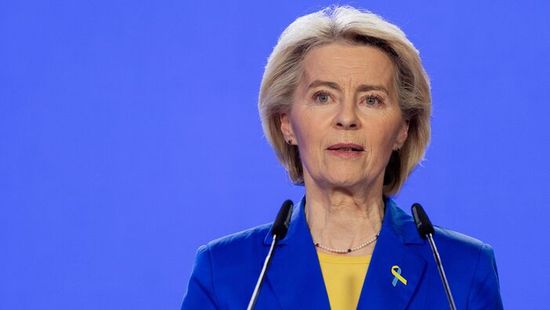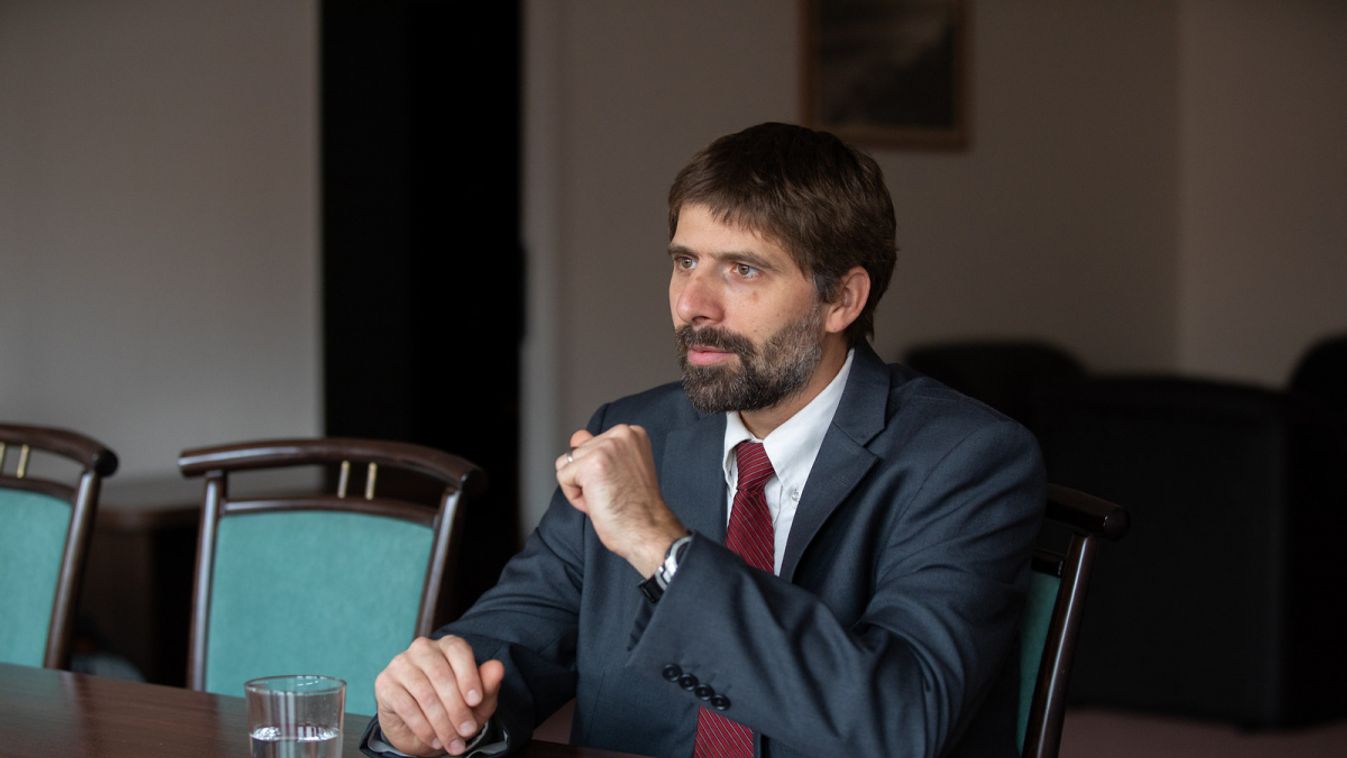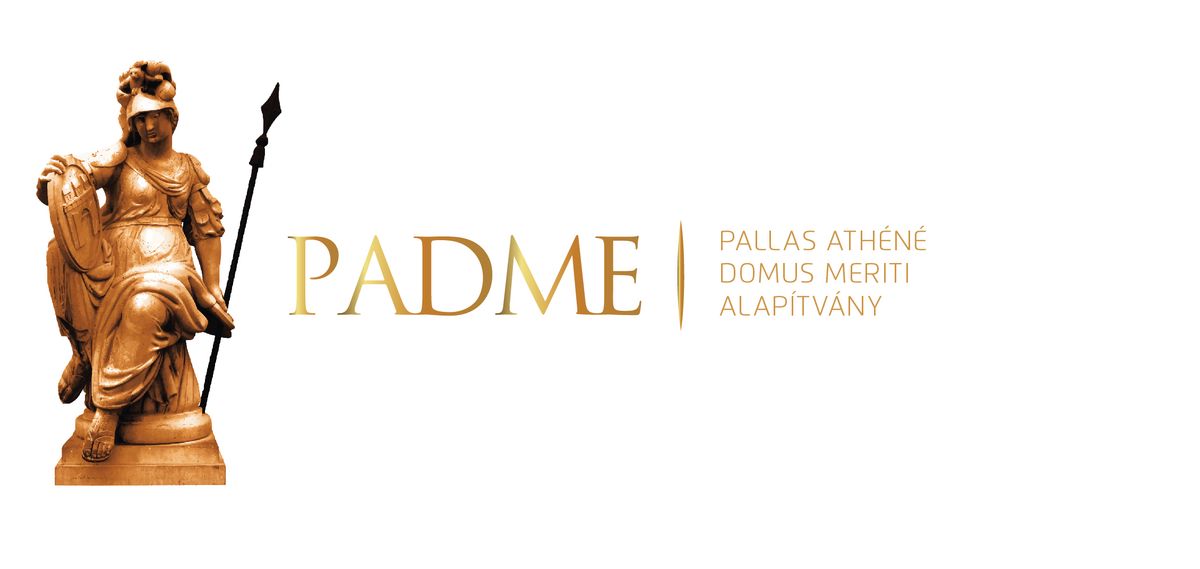Orbán móresre tanította Von der Leyent: megmutatta neki, mire képesek a magyarok (VIDEÓ)

„A szuvereintás jobb üzlet” – jelentette ki a Nézőpont Intézet vezetője.

In close election races, the level of noncitizen immigrants participation is potentially enough to tip the outcome. Noncitizens are typically much more supportive of the Democratic Party, so if the outcomes are tipped, it is likely that they are tipped in favor of Democrats – pointed out by Jesse Richman, Professor of Political Science at Old Dominion University in a conversation with Lénárd Sándor, researcher at the American Studies Research Institute of the National University of Public Service, located in Budapest.

Your have been researching American election politics and election law for a long time. Election law is one of the areas that still reflect the unique characteristic of the power distribution between the States and the federal or national government: Americans are electing a President but voting for an Electoral College. Can you highlight the historical roots and significance of this “dual nature” of US election law?
The States came together originally to form a central government and retained various powers for themselves, including powers dealing with elections. Presidential elections and elections for Congress both have a federal character. It reflects multiple level actions: the States choose first and then a national choice was made from these States’ choices. As for the Presidential election, each State has a number of electoral votes. It is based on the number of the members of the House plus the number of members of the Senate. Consequently, some States have more votes than others, but each State chooses how to allocate those votes. It is at the discretion of the State. Most States allocate their votes on the basis of simple plurality, so the person with the most votes in the State gets the electors. But it is not true in all States and potentially States could allocate their electors in a wide range of ways. Currently some States are trying to undo the Electoral College by using that discretion through the National Popular Vote Interstate Compact. They agree that their electoral votes will go to whoever wins the nationwide popular vote, irrespective of the outcome within the State. Whether this method will pass constitutional muster if it gets to enough States is not clear. Presidential campaigns respond to this “dual nature” of election regulation. What counts is what States one wins. So the campaigns always focus on specific States where they think to have a chance of making a difference. Nobody bothers to campaign in California. Why? It is because currently California is not a swing state. It went 2:1 for Hillary Clinton over Donald Trump. On the other hand for example Pennsylvania is currently a swing state. Therefore, the candidates spend plenty of time there.

So each State retained their unique roles in the Presidential election. Is this the reason why winning the popular vote does not necessarily translate into winning the presidency?
That’s right. It is an illustration of the broader concept that the electoral system matters. How you make a choice sometimes influences what the choice is. To win in the Electoral College a candidate must gain a majority of electors, typically by winning pluralities in enough States. This is achieved irrespective of whether perhaps the other candidate won more votes overall. Because of that federal choice process, four or five times in US history, even though one candidate won more votes nationwide, a different candidate won a majority in the Electoral College.
In one of your research areas, you are shedding lights on the worrisome development that a significant number of noncitizen immigrants are fraudulently participating in US elections. What makes this fraudulent behavior possible?
This is the result of the federal nature of the election system. In European countries, the governments usually have a list of everybody who is a citizen and this forms the basis of voter rolls. So it is easy to check such lists. However, there is no such list in the United States. States maintain records of births but there is no central repository across the fifty States. People move across States many times, so it is very difficult for any one State to establish the citizenship of the people who are living within the State and claim to be citizens.
The federal government has records about naturalizations and passports, but that only covers half of the people in the county. Consequently it is largely an honor-based system to keep noncitizens from registering to vote. When people register to vote they have to affirm that they are citizens, but there is only limited checking of whether those people are in fact citizens. Some States have attempted to enact measures to restrict noncitizen participation and there have been court fights around those issues.
Based on your research, can the noncitizens’ votes actually influence the outcome of a particular election?
The evidence suggests that although most noncitizens do not register to vote in US elections, some do. In close races, this level of participation is potentially enough to tip outcomes. Noncitizens are typically much more supportive of the Democratic Party and Democratic Candidates, so if they are tipped; it is likely that they are tipped in favor of Democrats. This issue is difficult to address because of this federal nature of the electoral system and because there is a mixed distribution of power between the national government and the States.
Is it fair to say that democratic leaning States are less willing to address this dilemma?
Part of the polarization in the American politics is the polarization in the approach to election regulation. States that are more Republican leaning have been taking various steps aimed at trying to increase the security of elections and requiring voters to present some kind of ID. There are some States, New York for example, where voters do not need to present any ID whatsoever when they appear at the voting booth. They assert that they are who they are and they are typically permitted to vote. Improving election security is a big divide between the parties.
Are in your view the noncitizens’ votes able to influence the upcoming 2020 presidential elections?
Well, it depends on whether the election will be close. It may not be close at all in which case it will surely not make a difference. And it depends upon where the election will be close. California for example has a very large noncitizen population. Some of those noncitizens will probably participate. However, they are not going to affect the outcome of a presidential election because whether or not they participate, California is going to be won by the Democrats. It matters where the close States are if the whole election is close.
Based on my data and research, it looked like it was potentially possible that the outcome of the 2008 presidential election in North Carolina could have been tipped by noncitizens. The election was quite close and there was a substantial noncitizen population. On the other hand, after a subsequent election in Ohio, some Republicans said that maybe this outcome was tipped by noncitizens. However, it seems completely impossible that it could have been because Ohio has a relatively small noncitizen population and the margin between the sides was large enough that one would have to see a much larger level of noncitizen participation than any of the estimates suggest exist to turn that election.
As we already mentioned the United States has been undergoing a widespread political polarization along with a robust centralization for the last several decades. How does this polarization influence the election politics?
The polarization has been increasing for at least five decades. It reflects increasing absorption of all political issues into a left – right, Republican versus Democrat contest and increasing disagreement between the parties. It has various effects. One of them is that State and local elections are being increasingly shaped by the national picture. People vote on the basis of their national party loyalties rather than even paying attention perhaps to whether the opposite state party might be actually a better choice. Among citizens most conservatives join the Republican Party while most people on the left join the Democratic Party. As a result, there is a much clearer ideological divide between the parties.
On top of that, there has been lately an aspect that can be called “negative partisanship”. People vote based on their dislike and distrust the other party. For instance, in the 2016 presidential election both Hillary Clinton and Donald Trump were disliked by substantially more people than they were liked by. For a substantial number of voters, it was a matter of choosing which one was disliked the least, rather than choosing affirmatively.
Conflict between the parties has also grown more intense. It started in the 1980s and the break down for example in norms around judicial nominations but it escalated through the 1990s with the Clinton impeachment. It continued in the 2000s with various attacks on both George W. Bush and Barack Obama. But it is at a still more dramatic level in the Trump presidency.
Indeed, there were voices about impeaching President Trump almost even before he was elected to President. Although impeachment is not unprecedented in US history, the constant threat of impeaching a President during his whole term is quite unique. How do you see these developments?
Let me push back slightly. One valuable aspect of the separation of powers is that the different branches of government check and balance each other. Congress is often involved in investigating a President. In this respect, there is nothing particularly new in the efforts of the President’s opponents to investigate potential scandals and bring those to light. The hope that these investigations will somehow damage the President politically is nearly a perennial in American politics. To a certain level it is even healthy.
At the same time one certainly has seen many arguments for impeachment of President Trump going back to the very beginning before he had even taken office. From this time on people were talking about wanting to impeach him, and that has continued and snowballed. The President’s defenders argue that his opponents knew they wanted to impeach him they just did not quite figure out what they were going to impeach him about. The current impeachment process is still in its early stages. We have not seen the House actually pass articles of impeachment.
How in your view could an impeachment process influence the 2020 presidential election?
I think the cloud of impeachment could affect the 2020 presidential election and is potentially detrimental for President Trump. The extent to which this is detrimental is hard to say. However, if it turns out badly for Democrats and if the public becomes convinced that the impeachment attempt is unwarranted and motivated by partisan considerations it could turn around and partially backfire on Democrats.
That was the case in the Clinton impeachment in 1999?
Yes, but in spite of the alleged backfire against the Republicans; Democrats lost the next presidential election. Al Gore, Clinton’s vice president was less able to claim credit for the good economy and other successes of the Clinton years because of the scandal and dishonor associated with Clinton’s escapades and the consequent impeachment. So if Democrats are able to build a case that the majority of the public finds compelling, it would substantially weaken Trump’s reelection chances.
So impeachment is not really about whether the President committed the articles of impeachment, or a “High Crime or Misdemeanor” but rather about whether the President’s opponents are able to convince the public about rejecting the President’s overall policy aspiration?
Where the public stands always matters in impeachment fights, because it affects the views of elected representatives who know they are going to have to face the public in the next election. So if the belief is that the public is backing the President, as the Democrats thought in the 1990s, this tends to stiffen the will of the members of the President’s party to stay with the President and to oppose the passage of articles of impeachment. On the other hand, as was the case with President Richard Nixon, if popularity dips to lower numbers as larger portions of the public seem to be becoming convinced that the President has engaged in some kind of wrongdoing worthy of impeachment, this can create an opening for erosion of presidential support even among members of the President’s party in Congress. Nixon resigned rather than go through the whole impeachment process. This resignation was probably driven by the belief that it was quite likely that had that process played out all the way he would have been impeached and he wanted to spare the country that fight.
***
A cikk a Pallas Athéné Domeus Educationis Alapítvány támogatásával valósult meg.
